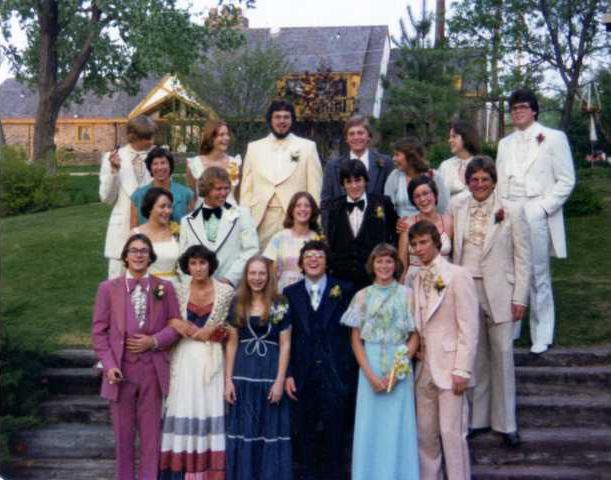Last weekend I attended my thirty-fifth high school reunion. Joining me was my high school classmate and one of my friends, John Holt. Just as we did for our 30th, the itinerary included a visit with a mentor who remains a spiritual influence in our lives – Sister Mary Rose Engle, our Principal at St. Patrick’s in 1965 and a Dominican sister for 75 years. Her residence at the Dominican Convent is across the street from the home where I grew up.
We had another visit to make. Father Dermot Tighe, raised near Galway, Ireland, he left his parents and nine siblings in the Spring of 1954 to answer a calling as parish priest to fledgling parishes in Western Kansas. Along the way gave he served our country as an Army chaplain including a stint in Vietnam. He retired as a full Colonel. His home is across the street from St. Pats, and its modesty a refreshing contrast to contemporary times.
By 6 p.m. we joined the company of the sinners – the class of 1977. Forgive me father for I once sinned.
Much has been written about the Greatest Generation of men and women who grew up in the Great Depression and went on to contribute to the defense of the country in World War II and Korea. But if historians wished to profile their children, one place to start would be those who gathered that night at our reunion. If our parents built the country’s infrastructure and helped populate our grade schools, what can we say about their parental nurturing?
This much we know – we were the product of a parenting ethos that is as antiquated as the land-line phone. We rode bikes, jumped ramps, made forts, built tree houses, chased mosquito trucks spewing DDT, mowed yards, and tossed the Great Bend Tribune while our mothers fixed four course meals and kept their maternity clothes nearby. We inhaled second hand smoke in cars, homes even churches. Our diet was Captain Crunch, Kool-Aid, Tony’s Pizza, Miracle Whip, real butter, and nothing had an expiration date or came in 100 calorie packs. We were rail thin.
Today they would describe us as the free range kids.
The most prized possession was your bike, followed by your baseball glove. The Monkees were better than the Beatles plus Davey Jones never said he was more popular than Jesus. Our class watched the country bury JFK, saw the KU student union burn in 1970 and Linda Lovelace run for President in a movie filmed in Lawrence. In 6th grade Attorney General Vern Miller came to town and raided seven night clubs – the Great Bend Tribune headlines on Monday, October 4, 1971 said it all. “Miller Rides into Town, Hits Gambling Jackpot.” Slot machines were the culprit.
Our high school principal, Don Halbower was 6’8” and kept order long before anyone heard of time out. Home economics and shop were academic staples.
Our parents named us after the Apostles, or simple names like Joe, Jim, Clint and Marty. Among my 200+ graduating classmates, there were no diplomas for anyone named Mercedes, Mia, Alexandra, or Hunter. And life was simpler, better.
With age I appreciate more than ever those friendships. Authentic, genuine people you could depend on for anything. Though our paths have diverted with time, seeing that collection of friends reminds me what a source of constancy they have been amid the hard turns in life. Common experiences shared with first confessions, suffering from our transgressions at the hands of Sisters Judith, Janice or Petrona, or tasting your first beer with four buddies while driving the dirt roads near Pawnee Rock. Nevermind that we were 16.
We ended Friday night at the Knights of Columbus, a fitting venue where Troop 120 held their scout meetings and the Holts and Keenan’s would leave merit badge training to sneak in the bar to watch halftime of Monday Night Football. The cigarette stained carpet was gone but the sense of belonging very real. In Great Bend, it always will be.
To reach Matt Keenan, visit his website site www.matthewkeenan.com or e-mail him mattkeenan51@gmail.com.
Reflections on the 35th class reunion, GB 1977





